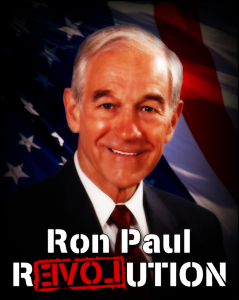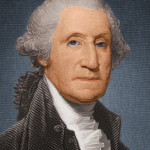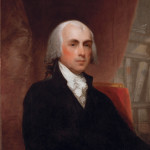by Ron Paul – Ron Paul Institute for Peace and Prosperity:
As we see each new administration, regardless of claimed ideological or political differences, pursuing the same destructive policies abroad and trampling our civil liberties at home, we must now face the key issues of our time. The issues of war or peace, republic or empire, liberty at home or the encroaching police state, can no longer be ignored. We find ourselves at the edge of a precipice, where it is obvious that the failed policies of the past cannot be repackaged under a new name to solve our crisis today.
Many still believe each four years that if only their candidate – with the newly-minted and freshly-printed slogans – is elected, we will finally be led to a new springtime in America, to peaceful and prosperous days ahead. But regardless of party, with only cosmetic differences the same policies are being pursued.
Those disgusted by the wars pursued by the Bush Administration, based on lies and manipulation, eagerly waved signs welcoming “change” and voted for new management. But the new manager turned out to be just as bad as the previous one, and in many cases even worse.
The festering wound called Guantanamo Bay has not been closed even as most of its dehumanized prisoners have been cleared for release. Those left there, most of whom not found guilty of anything, are resorting to secret hunger strikes in the hopes of perishing in peace rather than being forced to endure the misery.
The current administration has taken its predecessor’s flirtation with the use of drones to kill anonymously anywhere it chooses and turned it into the cornerstone of US foreign policy.
In Pakistan alone, this administration has killed nearly four thousand people, many of them civilians, with drone strikes. By some estimates, including a recent study by Stanford University, as many as 50 civilians are killed by drones for every terrorist. The administration uses “signatures” to determine who to kill, but these behavior patterns are not at all defined and most often encompass the normal day-to-day activities of farmers and others in Pakistan and elsewhere.
When the administration was forced recently to answer the question of whether it believed it had the legal right to kill Americans on American soil by drone strike, it did not, contrary to press coverage, deny that “right.” Instead, it merely reassured us that it would not kill any American at home by drone who was not considered a “combatant.” And who determines that? Under the precedent set by the previous Bush Administration, it is claimed the president has that imperial privilege.
Just a couple of years ago, Congress passed and the president signed a military spending authorization bill, the NDAA for 2012, which told the president that he has the right to indefinitely detain anyone, even Americans on US soil, indefinitely and without trial if he determines they have provided any sort of material support for terrorist groups or associated forces. What does “material” and “associated” mean? They won’t tell us.
Congress has allowed itself to be made irrelevant, behaving like children while deferring to the president the important decisions it is required to make by the Constitution. On Iraq, Congress left it to the president to decide what to do. On Libya, when in 2011 the president launched an illegal war under false pretenses, Congress did not bother to make a sound. As the president commits the US military to acts of war — covert and overt — against Iran, Syria, Mali, and so on, Congress watches meekly on the sidelines.
There are exceptions, of course, including many Members I have worked closely with over the years in attempt to win our colleagues back over to the side of the Constitution. Many of these friends and former colleagues continue this struggle from inside and they should be commended and supported. I am afraid they are at present still a small minority, largely ignored by House leadership of both parties. But their ranks are growing.
The framers of the Constitution viewed Congress not only as a co-equal branch, but as the first among equals — the people’s branch of government. The people’s branch has nearly lost all relevance today. No wonder poll after poll shows that the American people are disgusted with the whole process. According to the most recent Rasmussen survey, only eight percent of Americans believe Congress is doing a good job, and 53 percent of those surveyed do not believe either party really represents the American people.
We need something new.
We need a hard look at the key issues of our time: the future of freedom, the future of the human race, and of the United States. Neither the Republican nor the Democrat party are pro-peace. They are merely partisan. How many of our pro-peace allies during the Bush administration have disappeared now that a Democrat is in office pursuing the same policies? Also, see how many of the Bush-era hawks have questioned “Obama’s wars” only for petty partisan reasons. It is about political advantage rather than principle. But this is all coming to an end. It cannot be sustained. Every day more and more come over to our camp, the non-interventionists.
At the hands of the warmongers millions have died for nothing. Iraq, Korea, Iran, Syria, Afghanistan, Pakistan, Mali, Venezuela, Iraq, Yemen, Somalia, Sudan, and so on. How can we even know the full extent?
According to the US Special Operations Forces commander, Adm. William H. McRaven, testifying before the Senate Armed Services emerging threats subcommittee earlier this month, “On any day of the year you will find special operations forces [in] somewhere between 70 and 90 countries around the world.”
Why? To what end? And most importantly, where is the authorization? On whose permission does the US Special Forces Command conduct war in 70 to 90 countries at any given time? Are there stacks of hidden declarations of war somewhere that no American knows about? The constitution gives the president no power at all to make war on any given day in 70 to 90 countries, to use secret forces to undermine domestic political currents in favor of movements and politicians that the US elites judge to be “in line” with their interests. Again it is the sign of a nation that has lost its way.
It is time for us to stand up for peace, a peace that is intricately connected to justice, shared human values, and prosperity. A peace that leaves us safer than the empty lies of the warmongers. A peace that leaves our economic future with some glimmer of hope, that leaves our next generations with some glimmer of hope. A peace that frees up the economic resources that can prevent our children from being slaves to the impoverishing imperial ambitions of those directing our current foreign policy.
We are the real patriots. We believe in the United States. We believe the time is now to advance our issues as they have never been advanced before. Above all, we are the optimists. We believe in a brighter future.
The Cold War, as we now know, was itself largely hyped up by beneficiaries of the military build-up, but at the very least we should have expected at the end of the thousands of missiles pointed at us some sort of peace dividend. Instead, thanks to those whose careers and fortunes depended in some manner on the military industrial complex, we stumbled from the end of the war on communism to the war to control the world. This war has failed.
This is the agenda that we are going to advance. This is why I have decided to found my own peace institute that seeks friends and allies beyond all political, party, and ideological lines. We have a great battle of ideas ahead of us. It is time for all like-minded individuals, regardless of political, ideological, or other orientation to join this battle of ideas. We are ready to provide guidance.
I feel so strongly about this issue, the issue of war and peace at home and abroad, that I have for the first time given my name to an institute.
We do not have to agree on every single issue. We should tolerate those views that we may otherwise find objectionable — as long as they do not contradict our main shared values: an end to the American empire overseas and the assault on our civil liberties at home. At the end of my 2008 presidential run I gathered together the candidates of the “minor” political parties to see whether we could find some common ground, to see whether there might be some momentum to push forward a new kind of program beyond the domination of the two major parties. The joint statement we came up with then can very well serve as a guideline for our shared mission to restore peace and liberty to this country. To secure a better future for coming generations.
The statement reads:
We Agree
Foreign Policy: The Iraq War must end as quickly as possible with removal of all our soldiers from the region. We must initiate the return of our soldiers from around the world, including Korea, Japan, Europe and the entire Middle East. We must cease the war propaganda, threats of a blockade and plans for attacks on Iran, nor should we re-ignite the cold war with Russia over Georgia. We must be willing to talk to all countries and offer friendship and trade and travel to all who are willing. We must take off the table the threat of a nuclear first strike against all nations.
Privacy: We must protect the privacy and civil liberties of all persons under US jurisdiction. We must repeal or radically change the Patriot Act, the Military Commissions Act, and the FISA legislation. We must reject the notion and practice of torture, eliminations of habeas corpus, secret tribunals, and secret prisons. We must deny immunity for corporations that spy willingly on the people for the benefit of the government. We must reject the unitary presidency, the illegal use of signing statements and excessive use of executive orders.
The National Debt: We believe that there should be no increase in the national debt. The burden of debt placed on the next generation is unjust and already threatening our economy and the value of our dollar. We must pay our bills as we go along and not unfairly place this burden on a future generation.
The Federal Reserve: We seek a thorough investigation, evaluation and audit of the Federal Reserve System and its cozy relationships with the banking, corporate, and other financial institutions. The arbitrary power to create money and credit out of thin air behind closed doors for the benefit of commercial interests must be ended. There should be no taxpayer bailouts of corporations and no corporate subsidies. Corporations should be aggressively prosecuted for their crimes and frauds.
This is an historic moment. The era of the neo-conservative control over our foreign policy is passing. Those pushing authoritarianism at home are being challenged and rejected. The American people are turning away from a foreign policy of empire because they understand that they cannot afford it, that it does not make us safer but rather the opposite; that the price of empire abroad is a police state at home, and that throughout history all empires fall and fall in a catastrophic way. We can avoid this terrible fate if we stand up together.
Please, join us. Support our efforts. Become involved in our mission. Peace and prosperity.
Article originally posted at The Ron Paul Institute for Peace and Prosperity.























